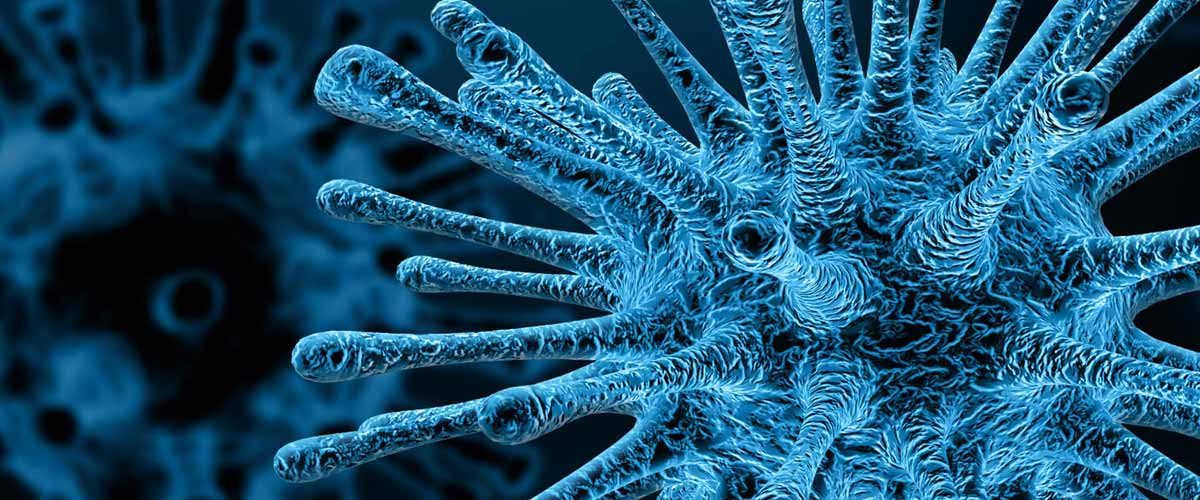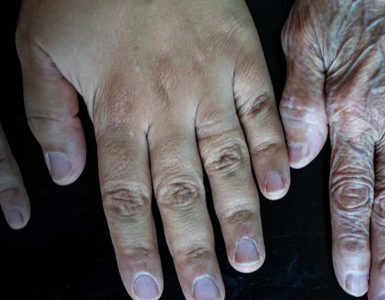Modern disinfectant products like sanitizers for killing viruses take a short while to thoroughly disinfect surfaces, which isn’t realistic on larger contact areas such as elevators, doorknobs, and banisters.
The University of Central Florida is co-developing an innovative, long-lasting, and rapid-acting disinfectant spray that immediately kills viruses without using insensitive chemicals.
The project is led by Christina Drake, a materials science engineer and owner of Orlando-based Kismet Technologies, Ltd. It includes the UCF Department of Materials Science and Engineering Chair and Professor Sudipta Seal and UCF Burnett School of Biomedical Sciences director and Professor Griffith Parks.
The National Science Foundation recently funded a more than $250,000 grant to the researchers’ team to progress the project.
Kismet Technologies is a research and development technology company that focuses on developing engineered supplies and sensors for protection, automotive safety and human health technologies.
Spray and tissue-based wiped disinfectants need a surface to stay soaked, usually on the order of minutes, to get to the 99.9 percent killing of viruses and germs. Researchers are trying to create a fast-acting disinfectant spray that will disinfect rapidly than currently available disinfectants and that leaves behind a transitory, yet continually, disinfecting film post application.”
Christina Drake, Materials Science Engineer, Department of Materials Science and Engineering, UCF
The transparent film is not sticky and will not be noticeable when applied to a surface due to the nanoscale size of the disinfecting particles it contains, Drake says. It is intended to sanitize continuously because of the regenerative action of the nanoparticles.
Drake got the inspiration for the spray while grocery shopping during the early days of the pandemic. She noticed a worker spraying disinfectant on a surface, but then immediately drying it, thus reducing the spray’s efficiency.
“I realized that was a real drawback of disinfectants,” Drake says. “Making surfaces wet and tainted for minutes in high populated areas, while people are there and shopping, is just not sensible.”
Later, Drake reached out to Seal, her doctoral advisor during her graduate studies at UCF, to develop ideas. While working with Seal to develop a virus-destroying face shield material, Parks joined the team to bring his virology expertise to the project.
The disinfectant they are developing works by using cerium oxide nanoparticles developed by Seal, which prior research indicates could be lethal to viruses similar to SARS-CoV-2, the virus that causes COVID-19 disease.
Cerium oxide nanoparticles have been revealed to have an extensive range of curative properties, including reducing radiation harm, healing diabetic wounds, killing cancer cells, and working as an antibiotic.
The nanoparticles have an exclusive capability to work as a powerful antioxidant in healthy human cells and also to produce protective hydroxyl radicals to defend against pathogens.
“We’ve been working on using these nanoparticles to kill cancer cells and other things, and we thought, why not create a separate formulation that can hopefully deactivate the virus in the same way, using its redox ability,” Seal says.
This approach is novel because of the various disinfecting methods built into the nanoparticles. They will be integrated into a formulation that allows a short-term, disinfectant film to form.
The scientists are enthusiastically working on initial manufacturing formulations that Parks will test on a panel of diverse viruses, including coronaviruses linked to SARS-CoV-2.
“I’m very excited to be a part of this terrific multi-discipline team of scientists addressing an important question in safety,” Parks says.
The disinfectant spray could be sent to the U.S. Environmental Protection Agency for endorsement at the end of the one-year project, after which it could emerge on the market, the researchers say.
Seal joined UCF’s Department of Materials Science and Engineering, which is part of UCF’s College of Engineering and Computer Science in 1997. He has an appointment at the College of Medicine and is a member of UCF’s prosthetics Cluster Biionix.
















Great research